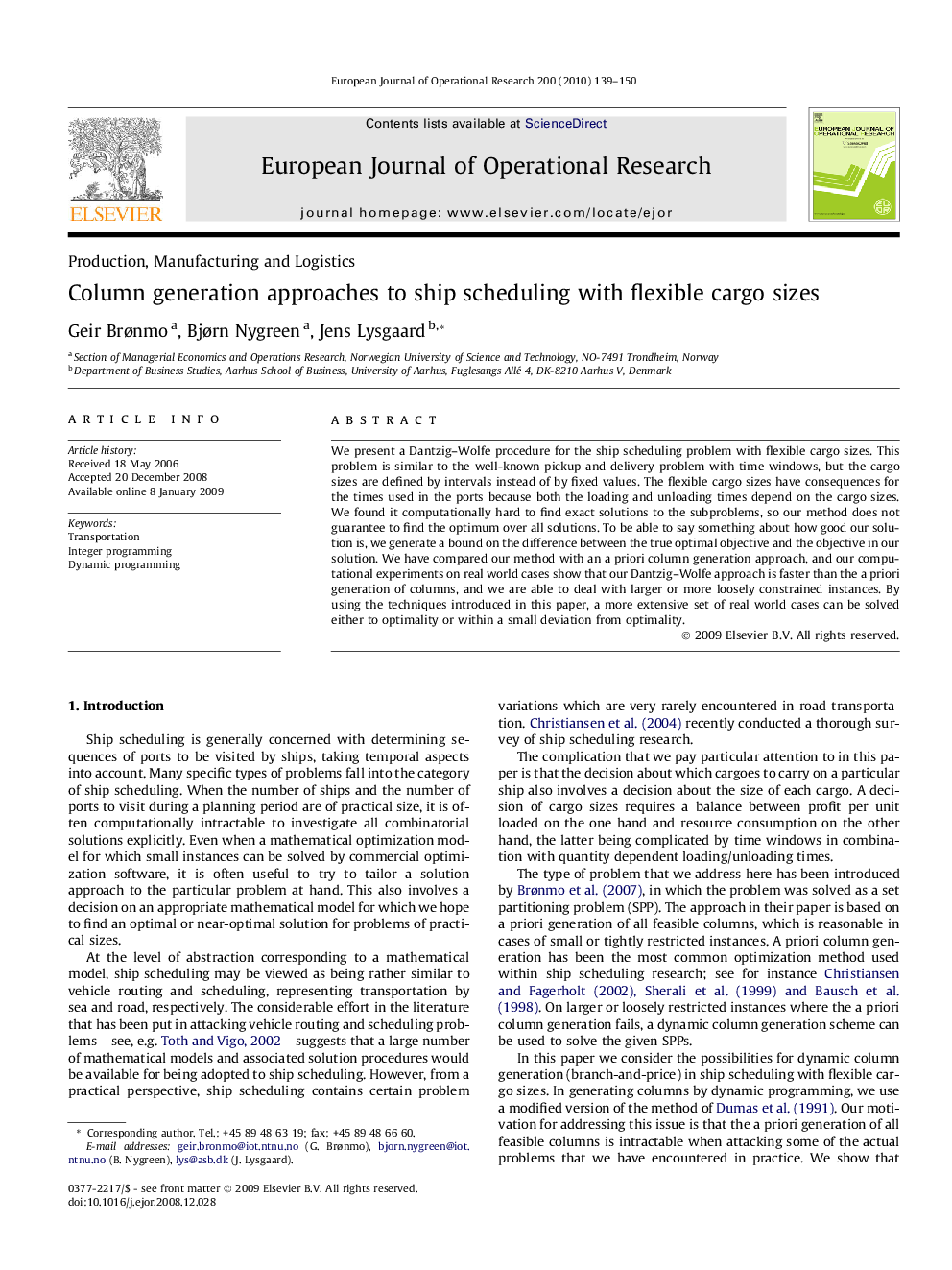| Article ID | Journal | Published Year | Pages | File Type |
|---|---|---|---|---|
| 480859 | European Journal of Operational Research | 2010 | 12 Pages |
We present a Dantzig–Wolfe procedure for the ship scheduling problem with flexible cargo sizes. This problem is similar to the well-known pickup and delivery problem with time windows, but the cargo sizes are defined by intervals instead of by fixed values. The flexible cargo sizes have consequences for the times used in the ports because both the loading and unloading times depend on the cargo sizes. We found it computationally hard to find exact solutions to the subproblems, so our method does not guarantee to find the optimum over all solutions. To be able to say something about how good our solution is, we generate a bound on the difference between the true optimal objective and the objective in our solution. We have compared our method with an a priori column generation approach, and our computational experiments on real world cases show that our Dantzig–Wolfe approach is faster than the a priori generation of columns, and we are able to deal with larger or more loosely constrained instances. By using the techniques introduced in this paper, a more extensive set of real world cases can be solved either to optimality or within a small deviation from optimality.
